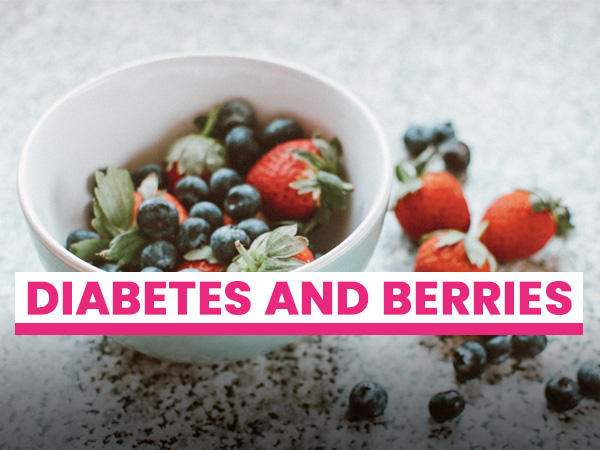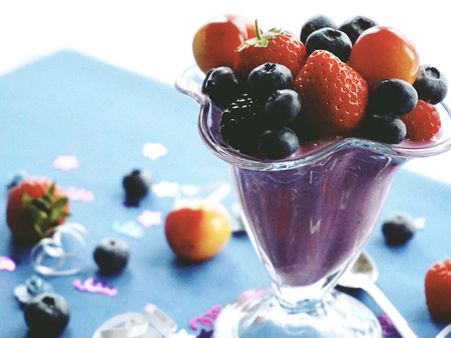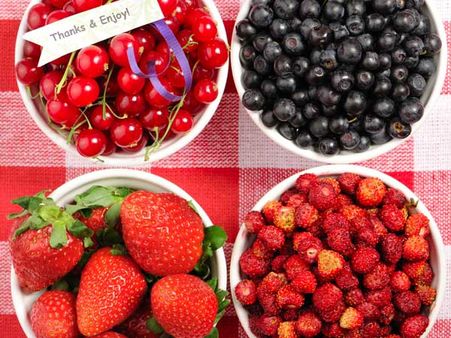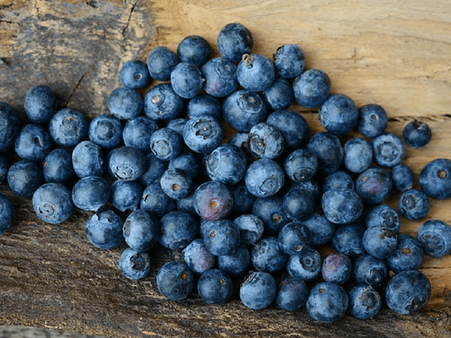Just In
- 6 hrs ago

- 6 hrs ago

- 7 hrs ago

- 7 hrs ago

Don't Miss
- Sports
 Harmanpreet Singh is one of the best drag-flickers in world hockey: Rupinder Pal Singh
Harmanpreet Singh is one of the best drag-flickers in world hockey: Rupinder Pal Singh - Movies
 Vidya Balan REACTS To Madgaon Express Success, Praises Film: If You Haven't...
Vidya Balan REACTS To Madgaon Express Success, Praises Film: If You Haven't... - Education
 UPSC CDS 1 Exam on 21 April 2024
UPSC CDS 1 Exam on 21 April 2024 - Finance
 1:10 Split: Tata's 122-Year-Old Hotel Gaint To Declare Dividends, Q4 Earnings Soon: Technical View On Stock!
1:10 Split: Tata's 122-Year-Old Hotel Gaint To Declare Dividends, Q4 Earnings Soon: Technical View On Stock! - Automobiles
 Jeep Compass Gets More Powerful 268.3bhp Turbo Petrol Engine – Check Out All The Details Here
Jeep Compass Gets More Powerful 268.3bhp Turbo Petrol Engine – Check Out All The Details Here - News
 Lok Sabha Elections 2024: ECI Slaps 48 Hour Ban On Congress' Randeep Surjewala Over Remark Against Hema Malini
Lok Sabha Elections 2024: ECI Slaps 48 Hour Ban On Congress' Randeep Surjewala Over Remark Against Hema Malini - Technology
 Redmi Pad SE With 90Hz Display Launching on April 23 in India; Could Be Priced for Less Than Rs 20,000
Redmi Pad SE With 90Hz Display Launching on April 23 in India; Could Be Priced for Less Than Rs 20,000 - Travel
 From Coconut Breaking on Head to Men Dressing as Women: 12 Unique Indian Rituals Explored
From Coconut Breaking on Head to Men Dressing as Women: 12 Unique Indian Rituals Explored
Are Berries Effective In Preventing And Managing Diabetes?
Berries are packed with many nutrients and phytochemicals. Several studies claim the importance of berries in reducing the risk of chronic diseases or metabolic syndromes, including diabetes.

Berries such as blueberries, strawberries, cranberries are among the commonly consumed varieties of the fruit. Dietary berries in forms like fresh, frozen or processed (unsweetened) can be a part of a healthy diet, as recommended by experts, for the prevention and management of diabetes. [1]
In this article, we will discuss the association between diabetes and different varieties of berries. Take a look.


Diabetes And Berries
Nutrition therapy is an important part of diabetes management. The presence of complex carbohydrates and bioactive compounds in berries helps manage high glucose levels and reduce diabetes-associated risks such as heart disease and inflammation. [2] Berries are also known to reduce the risk of diabetes in prediabetics.
According to the Health and Nutrition Examination Survey, berries make for the 10 per cent of all the fruits consumption in the US. They are low in calories and high in antioxidants such as vitamin C and folic acid; micronutrients such as potassium, vitamin K, fibre, manganese and copper and polyphenolic flavonoids such as tannins, flavonols and anthocyanins.

Are Nutrients In Berries Affected By Processing?
Anthocyanins are the most predominant flavonoids in berries and its content is minimally affected by processing. Raw strawberries, raspberries or blueberries contain around 42 per cent more anthocyanins compared to frozen forms.
Similarly, puree forms of this fruit contain 60 per cent less while juice forms contain 78 per cent reduced anthocyanins levels. [3]
Storing temperature, heat treatment and duration degrade the levels of flavonoids. A freeze-drying method is considered the most effective as it tends to keep the levels of anthocyanins intact.
Seasons also play a vital role in determining the content in berries. Berries cultivated in summer tend to have more phenolic compounds compared to those cultivated during winters. Other factors like different geographical regions and agricultural practises are also considered.


Effects Of Berries On Glucose Levels In Healthy Adults
Berries are known to manage glucose response after a meal, which sharply increases after the food intake. In a study, it was found that berries modulate gastrointestinal hormones that control satiety, hunger and metabolic response.
When a person consumes food, a peptide hormone called glucagon stimulates the secretion of insulin, that further controls the sudden spike of glucose in the body. It also helps provide satiety to prevent excess consumption of food. [4]
Resveratrol in berries also helps in counteracting leptin resistance, a condition when a person is obese but the brain is unable to identify it and still gives the signal for the consumption of more food. Overall, a diet enriched with berries helps prevent obesity, insulin resistance and glucose tolerance. [5]

Effects Of Berries On Glucose Levels In Obese Adults
Obesity is linked to insulin resistance and high cholesterol, factors that may cause diabetes and heart diseases. Berries like cranberries, blackberries and blueberries have shown improvement in insulin resistance in people who are overweight or obese.
In a study carried out in obese people, it was found that when berries were consumed with breakfast, lower glucose concentration in the blood up to several hours. [6]

Anti-Diabetic Effect Of Blueberries
In a study, it was found that blueberry reduces the risk of heart diseases associated with diabetes. Blueberries are high in anthocyanins which can alter the functioning of receptor proteins that contribute to glucose regulation, lipid homeostasis and decrease in inflammation.
Blueberries reduce fats in the abdominal area and increase skeletal muscles by reducing fasting insulin, triglycerides and insulin resistance. [7]

Anti-Diabetic Effect Of Blackberries
According to a study, blackberries increases fat oxidation when consumed during physical activities and also provides high energy to carry out the workout for a longer period. Additionally, blackberries promote the build-up of skeletal muscle and lower adipose tissues, contributing to weight loss, which in turn, reduces the risk of diabetes. [8]

Anti-Diabetic Effect Of Cranberries
In a study carried out on abdominally obese men, it was found that intake of cranberries (around 500 mL day) in a form of fruit or juice reduces inflammatory biomarkers, lipoprotein and glucose levels. This shows that cranberries are effective in reducing the risk of diabetes and also in managing the symptoms in diabetics. [9]

To Conclude
Berries are regarded as a superfood in the prevention and control of diabetes. Though many researches highlights the importance of different berries in diabetes, the area needs more research.
-
 nutrition22 Edible Berries To Add To Your Diet With their Health Benefits
nutrition22 Edible Berries To Add To Your Diet With their Health Benefits -
 nutrition10 Health Benefits Of Lingonberries With Ways To Consume And A Recipe
nutrition10 Health Benefits Of Lingonberries With Ways To Consume And A Recipe -
 wellness5 High Fibre Fruits Which Will Help You Lose Weight Easily
wellness5 High Fibre Fruits Which Will Help You Lose Weight Easily -
 diabetesWorld Diabetes Day 2022: 15 Healthy Snacks For Diabetics
diabetesWorld Diabetes Day 2022: 15 Healthy Snacks For Diabetics -
 nutritionHealth Benefits Of Pineberries
nutritionHealth Benefits Of Pineberries -
 nutritionAmazing Health Benefits Of Bilberry
nutritionAmazing Health Benefits Of Bilberry -
 nutrition10 Best Foods To Eat For Sickness
nutrition10 Best Foods To Eat For Sickness -
 wellness10 Foods Not To Eat Past Their Expiry Date
wellness10 Foods Not To Eat Past Their Expiry Date -
 nutrition12 Best Foods For Liver Infection
nutrition12 Best Foods For Liver Infection -
 healthInstagram Claims Grapes Are Contaminated With Pesticides, Methods To Clean It Properly Before Consuming Them
healthInstagram Claims Grapes Are Contaminated With Pesticides, Methods To Clean It Properly Before Consuming Them -
 astrologyLucky Fruits For New Year 2024 As Per Feng Shui: 9 Fruits That Will Attract Health, Luck, Happiness And Wealth
astrologyLucky Fruits For New Year 2024 As Per Feng Shui: 9 Fruits That Will Attract Health, Luck, Happiness And Wealth -
 healthWeight Loss: What Happens When You Drink Grape Juice Every Day Without Sugar? Can It Burn Fat?
healthWeight Loss: What Happens When You Drink Grape Juice Every Day Without Sugar? Can It Burn Fat?


 Click it and Unblock the Notifications
Click it and Unblock the Notifications





